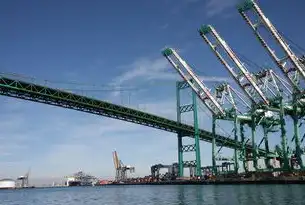本文目录导读:
- Manufacturing Sector
- Computing and IT Industry
- Logistics and Supply Chain Management
- Telecommunications
- Measuring and Improving Throughput
- Conclusion

图片来源于网络,如有侵权联系删除
Throughput, a term often associated with efficiency and productivity, is crucial in various sectors such as manufacturing, computing, logistics, and telecommunications. It represents the rate at which a system can process units or data over a given time period. Understanding throughput is essential for optimizing operations, enhancing performance, and ensuring smooth workflow across different industries.
Manufacturing Sector
In the manufacturing industry, throughput refers to the number of products produced within a specific timeframe. For instance, an automobile manufacturer might measure its throughput by calculating how many cars are assembled per hour or day. Efficient management of throughput helps manufacturers meet production targets while minimizing costs and maximizing output quality.
Key Factors Influencing Manufacturing Throughput:
- Machine Efficiency: Well-maintained machinery contributes significantly to higher throughput rates.
- Workforce Productivity: Skilled labor and effective training programs enhance productivity levels.
- Supply Chain Management: Ensuring timely delivery of raw materials prevents bottlenecks during production.
- Process Optimization: Streamlining workflows reduces idle times and increases overall efficiency.
Computing and IT Industry
In the realm of computing, throughput typically pertains to data transfer rates between devices or networks. This could involve measuring the speed at which data packets travel through a network or the amount of information processed by a computer processor.
Importance of Throughput in Computing:
- Network Performance: High throughput ensures faster internet speeds and reliable connectivity.
- Server Capacity: Measuring throughput helps determine server load and capacity requirements.
- Data Processing: Efficient data processing leads to quicker analysis and decision-making processes.
Logistics and Supply Chain Management
Logistics companies rely heavily on throughput to manage their transportation and distribution networks effectively. Throughput here refers to the volume of goods transported from one point to another within a specified period.

图片来源于网络,如有侵权联系删除
Role of Throughput in Logistics:
- Transportation Planning: Optimizing routes and schedules based on predicted throughput maximizes delivery efficiency.
- Inventory Management: Accurate forecasting of demand allows for better inventory control and reduced stockouts.
- Warehouse Operations: Efficient handling and storage systems improve warehouse throughput and reduce turnaround times.
Telecommunications
Telecommunications companies use throughput metrics to assess the capacity and performance of their communication networks. This includes evaluating how much data can be transmitted simultaneously without degradation in service quality.
Impact of Throughput in Telecoms:
- Bandwidth Utilization: Monitoring throughput helps allocate bandwidth resources efficiently.
- Service Quality: High throughput ensures consistent and reliable communication services.
- Network Expansion: Identifying areas where throughput needs improvement guides infrastructure investments.
Measuring and Improving Throughput
To accurately measure throughput, businesses employ various tools and techniques tailored to their specific needs. These may include:
- Performance Metrics: Tracking key performance indicators (KPIs) related to throughput helps identify areas for improvement.
- Simulation Models: Using simulation software to predict and optimize throughput under different scenarios.
- Real-time Monitoring: Implementing real-time monitoring systems provides insights into current throughput levels and potential issues.
Conclusion
Throughput is a critical metric that plays a pivotal role in driving operational excellence across diverse industries. By understanding and managing throughput effectively, organizations can achieve higher productivity, improved customer satisfaction, and ultimately, sustainable growth. As technology continues to advance, so does our ability to measure and optimize throughput, making it an indispensable aspect of modern business strategies.
标签: #吞吐量 英文



评论列表